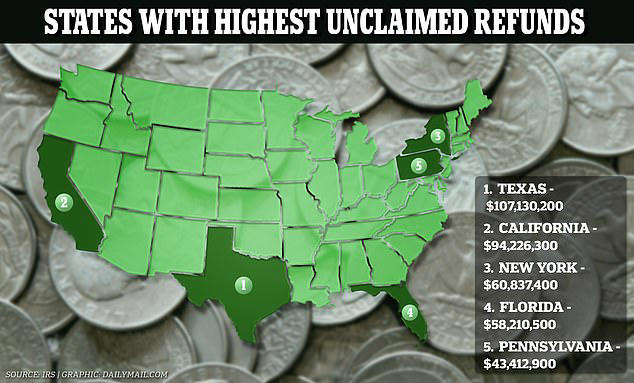Unclaimed Tax Credits: The Potential Consequences of Missing the May 17th Deadline
According to News Nation Now.com, as tax season progresses the IRS reminds taxpayers of an impending deadline that could result in significant refunds. Individuals who failed to file their tax year 2020 returns have until May 17 to submit their paperwork and claim any owed refunds. Significantly, late filing will not be penalized if a refund is due. However, it’s crucial to note that the return must reach the IRS within three years of the original due date to qualify for a refund. The extended deadline for 2020 returns stems from the COVID-19 pandemic which caused the filing deadline to be pushed beyond the usual mid-April timeframe.
This looming deadline isn’t just about reclaiming old refunds. It also represents the final opportunity for taxpayers to access any owed tax credits. The IRS emphasizes that individuals who may have overpaid taxes or had excessive withholdings could miss out on refund checks or the chance to apply the excess balance to future tax years. Moreover, those who didn’t file in the 2020 tax year could forfeit potential credits including the Earned Income Tax Credit and the Recovery Rebate Credit, further underscoring the importance of timely filing.
READ ALSO: Drug cartel gave surfer murder suspects to Mexican police: Report

$107 Million in Refunds: IRS Warns of Last Chance for Unclaimed Tax Credits and Refunds from 2020-Claim Yours Now! (PHOTO: MSN)
Maximizing Benefits: The Importance of Identifying Tax Credits Alongside Refund Claims
A state-by-state breakdown reveals substantial amounts of unclaimed refunds, with Texas leading the list at over $107 million, followed by California and Florida. As the deadline draws near the IRS urges taxpayers to initiate the filing process promptly. Gathering necessary documents from employers, banks and other relevant sources may take time so starting early is essential. For individuals still determining whether they need to file a return the IRS offers additional guidance on its website to clarify eligibility. With time running out taxpayers must utilize available resources and ensure they secure their rightful refunds before it’s too late.
Furthermore, beyond the potential for securing refunds, taxpayers should also be mindful of the various tax credits they might be eligible for. These credits can significantly impact individuals’ finances providing additional relief or benefits. Among these credits are the Earned Income Tax Credit which supports lower-income workers with qualifying families, and the Recovery Rebate Credit, designed for individuals who still need to receive one or more stimulus checks during 2020 and 2021. By filing their 2020 tax returns before the May 17 deadline, taxpayers stand to reclaim refunds and unlock these valuable credits further enhancing their financial well-being. Therefore, individuals must review their eligibility for these credits and take the necessary steps to ensure they receive all the benefits they’re entitled to before the deadline passes.
READ ALSO: $20K reward offered for Hickory cold case

















































